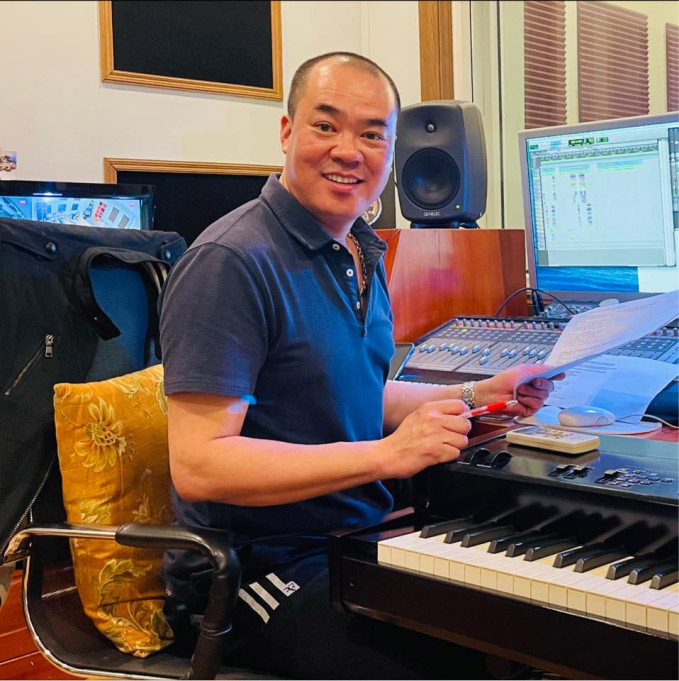Sell a lifetime for you became a phenomenon, spreading strongly from social networks to daily life.
The song is played continuously in coffee shops and restaurants, many singers choose to sing it again, while on TikTok, a series of million-view clips use the chorus: "I'm drunk not for the reason, but for you, I love you so much so I forget, forget the way home, forget myself".
Although the first version was performed with an AI voice, the song still created strong attraction, earning more than 14 million listens on the YouTube channel of Ken Quach - one of the two authors, along with Huong My Bong.
The highlight of the song is the opening with a nostalgic saxophone, creating a dizzying feeling right from the first notes. Many audiences could not hide their excitement: "This song is so thick, this card is out of place. The sound is also very permeable"; "I don't know how many times I listen to it but the emotions are still intact"...
Explaining the popularity of this song, musician - Lieutenant Colonel Trinh Xuan Hao shared with Lao Dong reporter: "Currently, just opening a phone or surfing any social networking platform can easily find many songs and music pieces created by AI. state a lifetime for you is also a typical example.
In this song, Ken Quach and Huong My Bong wrote the lyrics, gave the instructions and had 10% support from AI in the composition process. The song is loved by many people thanks to its beautiful lyrics, easy-to-listen melody, and easy-to-understand.
Of course, for those who are trained like us, just listening helps them know right away that this is a product created with AI technology".

Sharing about why many audiences today like to listen to AI music singing on social networks, including music composed by AI, musician Trinh Xuan Hao gave 5 factors.
First, AI music always has new, unique elements, different from traditional music that we often listen to such as pop, rock, ballad, rumba, bolero.
In addition, AI can create many musical styles that audiences have little opportunity to access. For example, AI can compose both classical and modern music. Thanks to that, listeners have an expanded space to experience.
The third factor is that AI music composed or sung often has a very high accuracy, without errors. It meets all the criteria that the audience needs, from harmony, arrangement to singing voice. The audience likes smoothness, even though they can recognize it as AI singing.
The fourth factor is that AI creates based on the needs and preferences of each individual audience member. When you like a bolero song, you can place a command for AI to write the lyrics, then sing, that is, AI to serve your personal needs, or in other words, personalize the music. A musician can compose a song for a group of audiences, a class of listeners who love that song. But AI serves each individual. Therefore, it can be said that AI can make it work for users to have a personal experience, the musician analyzed.
The fifth reason given by the musician for why audiences like to listen to AI music is because of curiosity. Previously, to have a complete song was a long process, going through many stages, from composition, harmony, arrangement... Now, in just a short time, AI can create a complete product. This stimulates the curiosity of listeners. Audiences are curious about listening to AI music, which is also a trend, the musician shared.
However, musician Trinh Xuan Hao affirmed: For me personally, AI-composed music cannot be considered a true work of art. It is just a work of man-made technology.
Lieutenant Colonel Trinh Xuan Hao, currently working at the Armed Forces Art Troupe, is the arrangement for many singers and film music editors. He has been in the profession for more than 30 years, is a musician, producer, director and possesses a rare deep voice. In addition, he also participated in a number of films, including "Quynh Doll".
He has just received the C prize of the Song Composition Campaign on the National Assembly and People's Councils for the work "Vietnamese Intelligence". Previously, he had a series of MVs expressing gratitude for the front line in fighting the epidemic such as "The Day of Victory", "Tank soldiers - Dispersing the epidemic" and "Vietnamese Bloodline".











